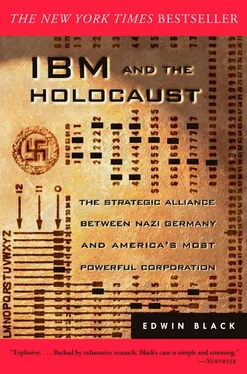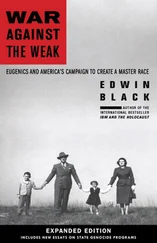* * *
THOMAS WATSONthomas watson and IBM had separately and jointly spent decades making money any way they could. Rules were broken. Conspiracies were hatched. Bloody wars became mere market opportunities. To a supranational, making money is equal parts commercial Darwinism, corporate ecclesiastics, dynastic chauvinism, and solipsistic greed.
Watson was no Fascist. He was a pure capitalist. But the horseshoe of political economics finds little distance between extremities. Accretion of wealth by and for the state under a strong autocratic leader fortified by jingoism and hero worship was appealing to Watson. After all, his followers wore uniforms, sang songs, and were expected to display unquestioned loyalty to the company he led.
Fascism, the dictatorial state-controlled political system, was invented by Italian Dictator Benito Mussolini. The term symbolically derived from the Roman fasces, that is, the bundle of rods surrounding a ceremonial axe used during Roman times. Indeed, Nazi symbols and ritual were in large part adopted from Mussolini, including the palm-lifting Roman salute. Ironically, Italian Fascism was non-racial and not anti-Semitic. National Socialism added those defining elements.
Mussolini fascinated Watson. Once, at a 1937 sales convention, Watson spoke out in Il Duce ’s defense. “I want to pay tribute… [to the] great leader, Benito Mussolini,” declared Watson. “I have followed the details of his work very carefully since he assumed leadership [in 1922]. Evidence of his leadership can be seen on all sides…. Mussolini is a pioneer… Italy is going to benefit greatly.” 65
Watson explained his personal attraction to the dictator’s style and even observed similarities with his own corporate, capitalistic model. “One thing which has greatly impressed me in connection with his leadership,” conceded Watson, “is the loyalty displayed by the people. To have the loyalty and cooperation of everyone means progress—and ultimate success for a nation or an individual business… we should pay tribute to Mussolini for establishing this spirit of loyal support and cooperation.” 66
For years, an autographed picture of Mussolini graced the grand piano in Watson’s living room. 67
In defense of Fascism, Watson made clear, “Different countries require different forms of government and we should be careful not to let people in other countries feel that we are trying to standardize principles of government throughout the world.” 68
Years after der Fuhrer seized power, Watson drafted a private letter to Reich Economics Minister Hjalmar Schacht, in which he argued “the necessity of extending a sympathetic understanding to the German people and their aims under the leadership of Adolf Hitler.” Watson described Hitler’s threatening posture toward other nations as a “dynamic policy.” In referring to the “heroic sacrifices of the German people and the greatest achievements of their present leadership,” Watson declared, “It is the sincere and earnest desire entertained by me and countless other friends of Germany… that these sacrifices and achievements should be successful and that the New Germany should reap the fruits of its present great effort to the fullest extent.” Watson concluded the draft with “an expression of my highest esteem for himself [Hitler], his country and his people.” 69
Watson was equally appreciated and admired by Fascists, especially in Germany. In its struggle with the democratic governments and popular movements that opposed Germany’s anti-Semitic drive, Nazis greatly valued their unexpected and influential ally. To them, it was a subtle green light of quiet approval because Watson seemed, in the Nazi mentality, to speak for more than one American firm—he seemed to represent President Franklin D. Roosevelt and indeed America itself.
The man who began his career as a turn-of-the-century horse-and-buggy peddler had graduated to become America’s number one private international statesman. Watson used charitable donations to telescope his own importance. The roll call of honorary appointments of power and prestige was long and enviable. He was the chairman of the Carnegie Endowment for Peace, trustee of New York University, and chairman of the American section of the International Chamber of Commerce—and the lengthy gilded list proceeded from there. In fact, in the very days before the Reich awarded Dehomag the census contract, American newspapers prominently reported that Watson had been both nominated unopposed as a director of the Federal Reserve Bank and appointed trustee of Columbia University. 70
His access to Secretary of State Cordell Hull, and more importantly to President Franklin D. Roosevelt, was unparalleled. While the Hoover Justice Department was at the height of its anti-trust investigation of IBM in 1932, Watson donated large sums to the Roosevelt campaign. Roosevelt’s election over Hoover was a landslide. Watson now had entree to the White House itself. 71
Watson carefully curried favor with Roosevelt by publicly supporting some of his more controversial policies. Soon, Watson was sending policy suggestions to the President. The two men began to correspond regularly. Watson was so proud of the letters, some of them mere presidential tokens, he would carry them around in a pocket, showing them off when the moment would permit. 72
Soon, Roosevelt came to rely on Watson for advice. White House staffers would occasionally ask for Watson’s schedule in case the President needed to contact him quickly. Watson visited Hyde Park for tea several times and even stayed overnight at the White House. Eventually, Roosevelt offered to appoint Watson Secretary of Commerce or Ambassador to England. But Watson declined to leave IBM. 73
Instead, Watson’s son remembers, “he served unofficially as Roosevelt’s representative in New York.” If a foreign dignitary arrived, the White House might ask Watson to stage an honorary luncheon. “All Father had to do was press a button,” his son remembers. “He had a whole department that did nothing but set up company dinners and other functions… all at IBM expense.” Indeed, Roosevelt once remarked, “I handle ’em in Washington and Tom handles ’em in New York.” 74
Watson leveraged his position with the Administration to develop extensive contacts with Secretary of State Cordell Hull, numerous ambassadors and consuls, and the State Department in general. Cloaked in officialdom, Watson never failed to undertake the often months-long process of formally soliciting official greetings to private functions from Roosevelt, Hull, or other Administration luminaries. These letters, often gratuitous, broadcast arcs of power to those observing overseas, especially in a Reich that believed in bigger-than-life personages.
No wonder Nazi Germany considered Watson a very powerful friend. Indeed, when in October 1933 Dehomag encountered unexpectedly high customs duties on IBM machinery it hoped to import as part of its new expanded portfolio, Heidinger wrote a thinly veiled threat to Reich Customs bureaucrats. “The president of our American co-associate, the International Business Machines… Mr. Watson, is one of the most prominent American personalities,” asserted Heidinger. “Among other things, he is one of the well-known 25 intimate counselors of President Roosevelt, president of the New York Chamber of Commerce… he also holds many, many other positions of honor in the United States. In keeping with his friendliness for Germany, proven at all times, he has up to now done everything possible which appeared to be to the interest of Germany. I am quite sure that Mr. Watson would never understand… a country to raise supplementary customs… on his machines.” Heidinger added, “I do not know what the attitude of the above-named would be if the customs increase were permitted. I am recommending,” Heidinger concluded, “that the above facts be placed to the knowledge of the two gentlemen [customs officers] examining the situation.” 75
Читать дальше












